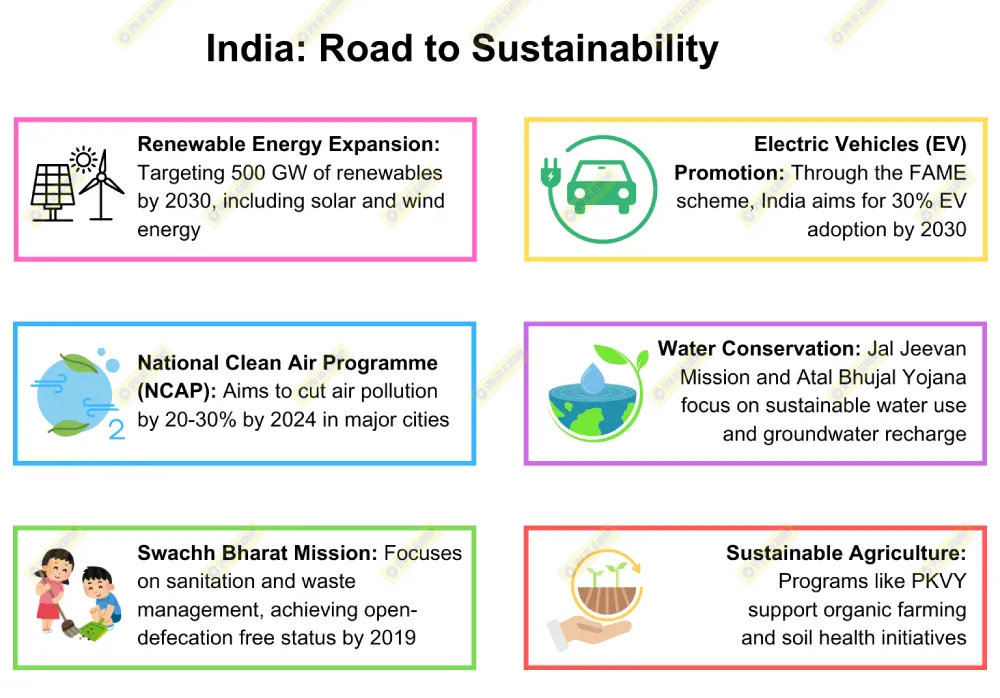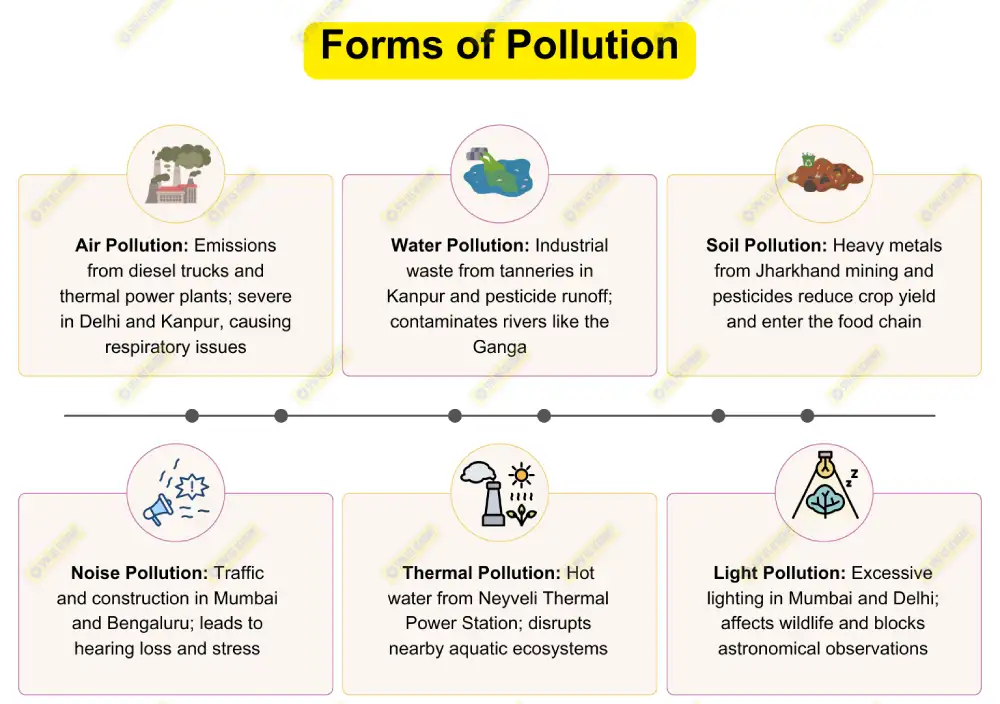In today’s world, sustainability has emerged as a critical framework for addressing environmental, economic, and social challenges. With rapid industrialization and urbanization, pollution has become one of the most pressing issues, particularly in countries like India where air, water, and soil pollution levels are among the highest globally. The journey to sustainability begins with preventing pollution, as it not only protects ecosystems but also builds the foundation for lasting economic growth and public health. As UN Secretary-General António Guterres recently stated, “The war on nature must stop,” urging countries to prioritize pollution control as an essential step toward a sustainable future.

Here are several reasons to support this view:
1. Protecting Public Health and the Environment
- Pollution prevention directly reduces the burden on public health systems by limiting diseases caused by air, water, and soil contaminants. The World Health Organization (WHO) estimates that air pollution alone causes around 7 million premature deaths each year globally, with India being one of the most affected.
- Prime Minister Narendra Modi at the UN Climate Summit emphasized, “India is not only contributing to global climate action, but also acting on pollution prevention through initiatives like Swachh Bharat Mission and National Clean Air Programme.”
2. Economic Benefits of Preventing Pollution
- Preventing pollution is more cost-effective than remediation. According to the Centre for Science and Environment (CSE), air pollution costs India an estimated 1.36% of its GDP annually. Reducing pollution can reduce healthcare costs and boost worker productivity.
- UN Secretary-General António Guterres highlighted that transitioning to green energy and pollution reduction could create millions of jobs globally, suggesting a viable economic model rooted in sustainability.

3. Promoting Innovation and Green Technologies
- Pollution prevention drives innovation by encouraging industries to adopt cleaner, more efficient technologies. The rise of electric vehicles (EVs), renewable energy, and sustainable agriculture practices in India reflects this shift. Recent government initiatives like the FAME (Faster Adoption and Manufacturing of Hybrid and Electric Vehicles) scheme aim to reduce vehicular pollution and advance clean mobility.
- Elon Musk, a pioneer in clean technology, has said, “Sustainable energy and pollution prevention are the future for economic resilience and environmental protection.”
4. Climate Change Mitigation
- Pollution prevention is crucial for addressing climate change. Reducing greenhouse gas emissions through pollution control measures aligns with India’s commitments under the Paris Agreement to lower carbon emissions intensity. The International Solar Alliance (ISA), co-founded by India, demonstrates India’s commitment to solar energy, an effective way to cut emissions.
- Environmentalist Vandana Shiva has emphasized, “Preventing pollution not only preserves biodiversity but also strengthens communities against climate change impacts.”
5. Fostering a Culture of Responsibility and Sustainability
- Pollution prevention promotes a culture of environmental responsibility and resource conservation, which are cornerstones of sustainability. Initiatives like Swachh Bharat Abhiyan encourage citizens to take ownership of their environment, laying the groundwork for sustainable habits and policies.
- Mahatma Gandhi’s philosophy of “be the change you wish to see” resonates with this approach, advocating a lifestyle that reduces waste and prioritizes environmental stewardship.
Starting the journey to sustainability with pollution prevention creates a solid foundation for a healthier, economically resilient, and environmentally conscious society. It is both a moral and practical imperative that paves the way toward a sustainable future, in line with India’s global commitments and its vision of “Sabka Saath, Sabka Vikas, Sabka Prayas” for inclusive development.











